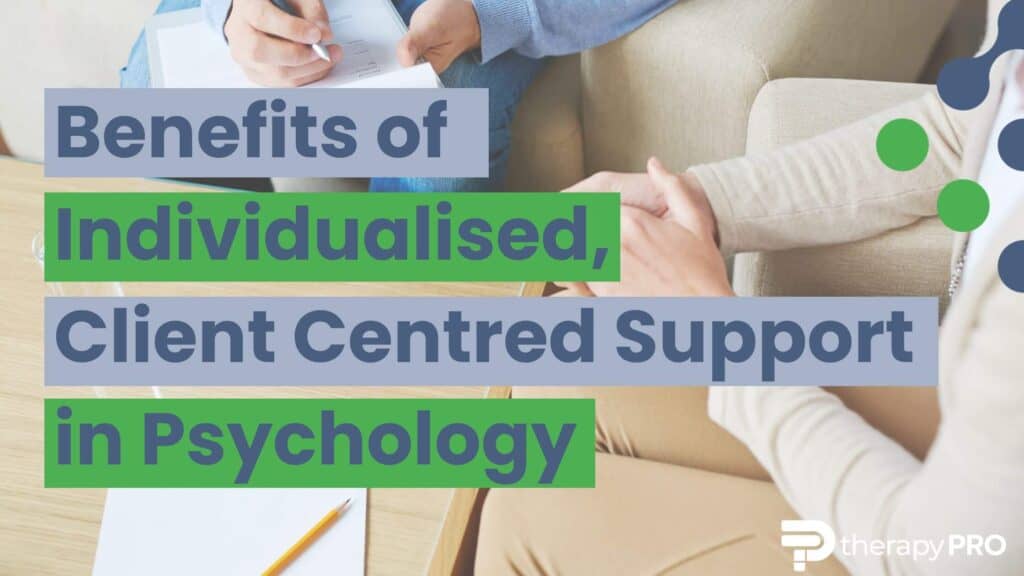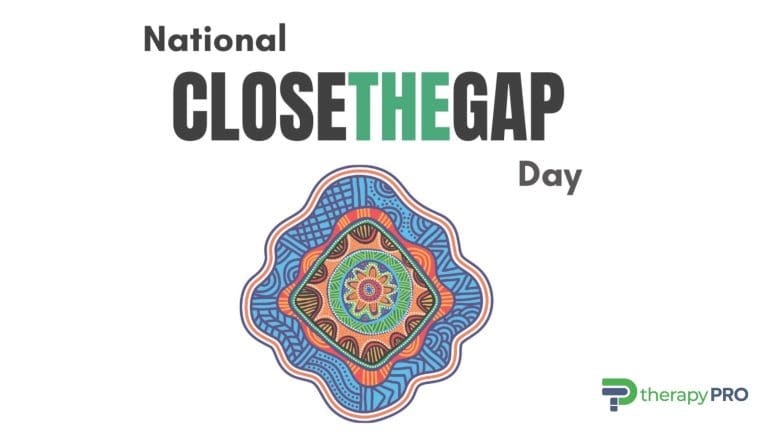The Benefits of Individualised, Client Centred Support in Psychology
Individualised, client centred support is at the heart of effective psychology services. It really is pivotal for achieving meaningful and lasting outcomes.
This is because when clinicians approach their psychology practice in this way, they’re tailoring therapy to meet each client’s unique needs and goals. They’re also fostering a therapeutic environment that is empathetic, non-judgmental, and supportive.
Understanding Individualised Support
Individualised support in psychology means that the therapy is customised to fit the specific circumstances and needs of the client.
What individualised support is not?
It’s not a one-size-fits-all approach. It is not a cookie-cutter solution, nor a templated program applied to anyone and everyone.
Instead, it is a bespoke plan that addresses the uniqueness of the person and their specific situation.
This approach ensures that the strategies and interventions used are relevant and effective for the individual’s personal goals, whether they are improving emotional regulation, building daily living skills, or enhancing overall mental health.
The Benefits of Client Centred Therapy
There are many benefits to delivering therapy that puts the client at the centre. We’re going to explore five:
#1: Empathy and Understanding
Client centred therapy places a strong emphasis on empathy.
Therapists strive to understand the client’s feelings and perspectives deeply, which helps in building a trusting and secure therapeutic relationship.
This empathy allows clients to feel safe and supported, making it easier for them to engage with the therapy process.
#2: Unconditional Positive Regard
A key component of client centred therapy is unconditional positive regard, where therapists provide consistent support and acceptance, regardless of the client’s experiences or feelings.
This non-judgmental approach fosters a sense of safety, encouraging clients to express their true emotions and work towards positive change.
#3: Genuine Human Connection
The authentic, empathetic connection between therapist and client is crucial for healing.
Client centred therapy emphasises the importance of a genuine therapeutic relationship, where clients feel seen, heard, and understood.
This connection is vital for personal growth and self-exploration.
#4: Personal Growth and Self-Awareness
By focusing on the individual’s unique experiences and promoting self-exploration, client centred therapy helps clients develop greater self-awareness and personal growth.
Clients learn to understand their thoughts, emotions, and behaviours better, which can lead to improved self-esteem and self-acceptance.
#5: Holistic Approach with Multidisciplinary Support
When therapy is individualised, the clinician considers the client holistically.
Here is an example:
A person may initially work with a psychologist because they are feeling high levels of anxiety. Upon further exploration, it might be identified that the anxiety is exacerbated by difficulties with daily living tasks and sensory processing issues. The psychologist may seek the support of an occupational therapist for further assessment and evaluation.
Here at Therapy Pro, our team works in this multidisciplinary way each and every day. While a client may seek the support of one clinician, there is in fact a team of experienced and professional therapists available to ensure that all aspects of their therapeutic needs are addressed.
Providing comprehensive and coordinated care in this way supports overall development and well-being.
Therapy Services Across the Lifespan
Individualised support is essential for both adults and children, addressing their unique challenges and promoting overall well-being.
Adult Therapy Services
Adults face a range of psychological challenges, from stress, anxiety, depression, grief and loss, job loss, personal injury, and relationship issues.
Individualised support for adults focuses on helping them develop coping strategies, improve emotional regulation, and enhance their overall mental health.
Our therapists work collaboratively with adults to create personalised treatment plans that address their unique needs and goals. This approach not only supports mental well-being but also fosters personal growth and self-discovery. Our therapists are trained in trauma informed practice and culturally safe practice to ensure people from culturally and gender-based diversity are appropriately supported.
Examples of Support for Adults
Stress and anxiety management: Techniques such as mindfulness, cognitive-behavioural therapy (CBT), dialectical behaviour therapy (DBT), acceptance commitment therapy (ACT) and motivational interviewing (MI) are used to help adults manage stress and anxiety effectively.
Depression treatment: Therapeutic approaches like client centred therapy cognitive-behavioural therapy (CBT), dialectical behaviour therapy (DBT), acceptance commitment therapy (ACT) and motivational interviewing (MI) help adults understand and manage their depressive symptoms.
Relationship issues: Therapy can address communication problems, enhance relationship skills, and promote healthier interpersonal dynamics.
Child Therapy Services
Children have unique psychological needs that require specialised approaches.
Our paediatric psychology services for children are designed to support their emotional and developmental growth. By using playful and engaging methods, therapists can help children express their feelings, build resilience, and develop coping skills.
Individualised support ensures that each child’s therapy plan is tailored to their specific needs, helping them thrive both at home and in school.
Examples of Support for Children
Emotional regulation: Techniques like play therapy and cognitive-behavioural strategies help children learn to manage their emotions.
Developmental support: Therapies are designed to support developmental milestones and address any delays or challenges.
Social skills: Therapies that are designed to help children build healthy relationships and improve their interactions with peers.
How Individualised Therapy Plans Support NDIS Participants
Therapy Pro supports NDIS, Medicare, and privately funded clients. Some clients may also find that their therapies are covered by their private health funds.
We’ve covered a lot about the benefits of individuals therapy plans, however when we consider our clients supported by the NDIS and the additional barriers they may face, there are some other benefits to consider.
Quickly, here are three:
Navigating the NDIS: Many NDIS participants find the system complex. Individualised support helps simplify the process by providing clear guidance and tailored assistance. Check out this blog for tips on coordinating supports under the NDIS, should this be useful to you.
Consistency of care: Ensuring consistent quality of care is a common challenge. Our approach guarantees that every service is personalised, maintaining high standards across all interactions.
Geographical barriers: With our mobile and telehealth services, we make therapy accessible regardless of location, breaking down geographical barriers that often limit access to essential support.
Real-Life Impact: Success Stories
To illustrate the impact of individualised, client centred support, we have numerous success stories from our clients (some of which are de-identified for privacy).
These stories highlight how personalised care and the MDT approach have helped individuals achieve their goals and improve their quality of life.
Head on over to our blog to read more about our clients.
Wrapping Up
Here at Therapy Pro, we put our clients at the centre of all that we do. It makes perfect sense that individualised, client centred support is not just a method; it’s one of our core philosophies.
Our clinicians place our client’s needs and experiences at the forefront of their therapy.
By focusing on personalised care, we help clients achieve their goals and enhance their overall well-being.
If you, or someone you know, requires support to manage their mental health, reach out to our Customer Service Team who can match you to a Therapy Pro therapist for compassionate, professional, and individualised assistance.




